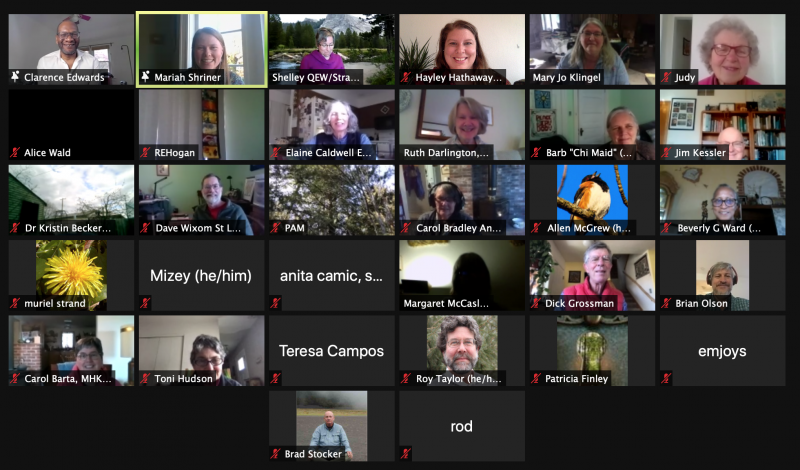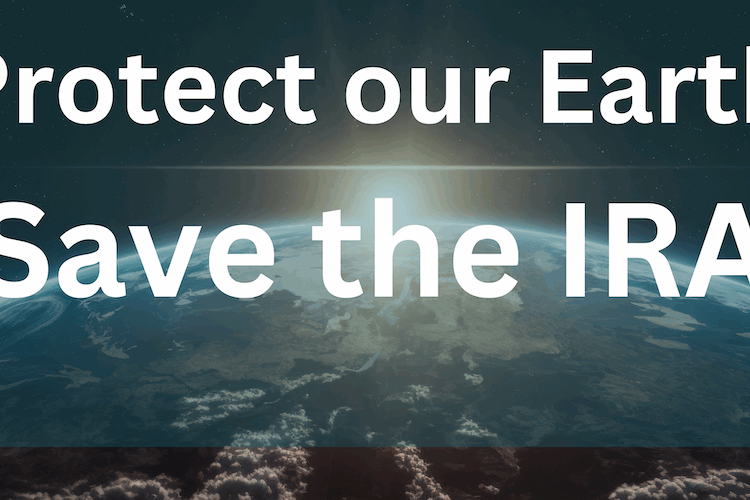Quaker Advocacy on Sustainable Energy & Environment: Interview with FCNL’s Clarence Edwards

Clarence Edwards leads Friends Committee on National Legislation (FCNL)’s work on sustainable energy and environmental policy as Legislative Director. He brings to FCNL extensive experience in government relations, issue advocacy, and strategic communications. Clarence joined Quaker Earthcare Witness for our April Steering Committee Meeting. Here Clarence answers questions from QEW’s FCNL Working Group, which works to strengthen the connection between the two organizations in order to move forward action on climate change at the federal level.
Given a new administration and a closely divided Congress, what are the prospects for passing climate change legislation in 2021-2022?
I think that the prospects for passing climate legislation in the next two years are very good, and I think so because there is a real sense that this is perhaps the best opportunity in years for a national level response to the climate crisis. There is a real sense in Washington, DC, which is strongly felt among those who are focused on climate, that the moment calls for transformational change. The Biden Administration, through its statements, executive orders, and the American Jobs plan, has really contributed to this sense of change and possibility. There is a lot of momentum now, and I think that momentum will carry us to significant climate change legislation in the next couple of years.
FCNL’s climate change lobbying has recently focused on carbon pricing. Will that continue to be a focus? Will FCNL continue to use the criteria developed by your predecessors to evaluate carbon pricing legislation, including an emphasis on environmental justice and no limit on the Environmental Protection Agency’s ability to regulate greenhouse gases?
We will continue to advocate for a price on carbon because we continue to see this as a straightforward and logical response to the need to reduce the amount of carbon in the atmosphere, and we see it as a market mechanism that will force carbon intensive businesses to seek alternatives. We recently updated our carbon pricing principles to reiterate our previous position on this issue. We are interested in supporting other climate-focused issues that align with FCNL’s vision.
Is it time to lobby on other solutions, such as renewable energy, no more fossil fuel infrastructure, and regenerative agriculture?
We are interested in lobbying for other climate-related policies and have started to place emphasis in some new areas. In addition to carbon pricing, we are lobbying in support of the Environmental Justice for All Act. This legislation is important as it seeks to respond to the fact that lower-income communities and communities of color have been disproportionately burdened by environmental degradation stemming from fossil fuel extraction that has left these communities exposed to polluted air, waterways, and land.
The need for environmental justice is the result of decades of environmental racism that has been fueled by decades of residential redlining and urban planning decisions that sacrificed minority neighborhoods and has taken the form of lower-income and minority communities being seen as the home for landfills and fossil fuel infrastructure. This has contributed to increased polluted neighborhoods and increased health disparities. We look forward to sharing more about this issue with the broader FCNL community in the coming weeks.
Are there specific bills you see holding promise in this session of Congress? What do you think about Congresswoman Pingree’s bill on Agricultural Resiliency, H.R. 5861, for example?
I think that agriculture sector goal of net zero emissions by no later than 2040 is something the US should shoot for and can achieve, and I like the idea of seeking to reduce food waste by at least 75 percent.
There are a lot of interesting pieces of legislation and ideas around at the moment. We are also interested in legislation that supports a “just transition” as we move toward a low-carbon economy. This is interesting to us because we see helping former fossil fuel workers and fossil fuel dependent communities to find their place in a sustainable, low-carbon economy as essential not only to the health of the environment and the economy, but also as critical to social cohesion and to helping people to imagine a better future.
In advocating for carbon pricing, environmental justice, and a just transition, we are drawing a vision of the world that we (as the Quaker community) want to see. For me, that world is one that features a low-carbon economy that emphasizes environmental protection and offers hope and opportunity for everyone.
How can FCNL and QEW work together to mobilize Quaker constituents to lobby Congress?
I am eager to engage the Quaker community’s grassroots advocates who are critical to our work and success. I am looking forward to collaborating further with QEW on meetings with congressional offices, future web discussions, and (hopefully) some in person visits in 2021.
This is an exciting and transformational time in history. We are grateful to work on these issues and bring a message of hope for the future to efforts to address the climate crisis!
Visit FCNL.org/climate for more.

